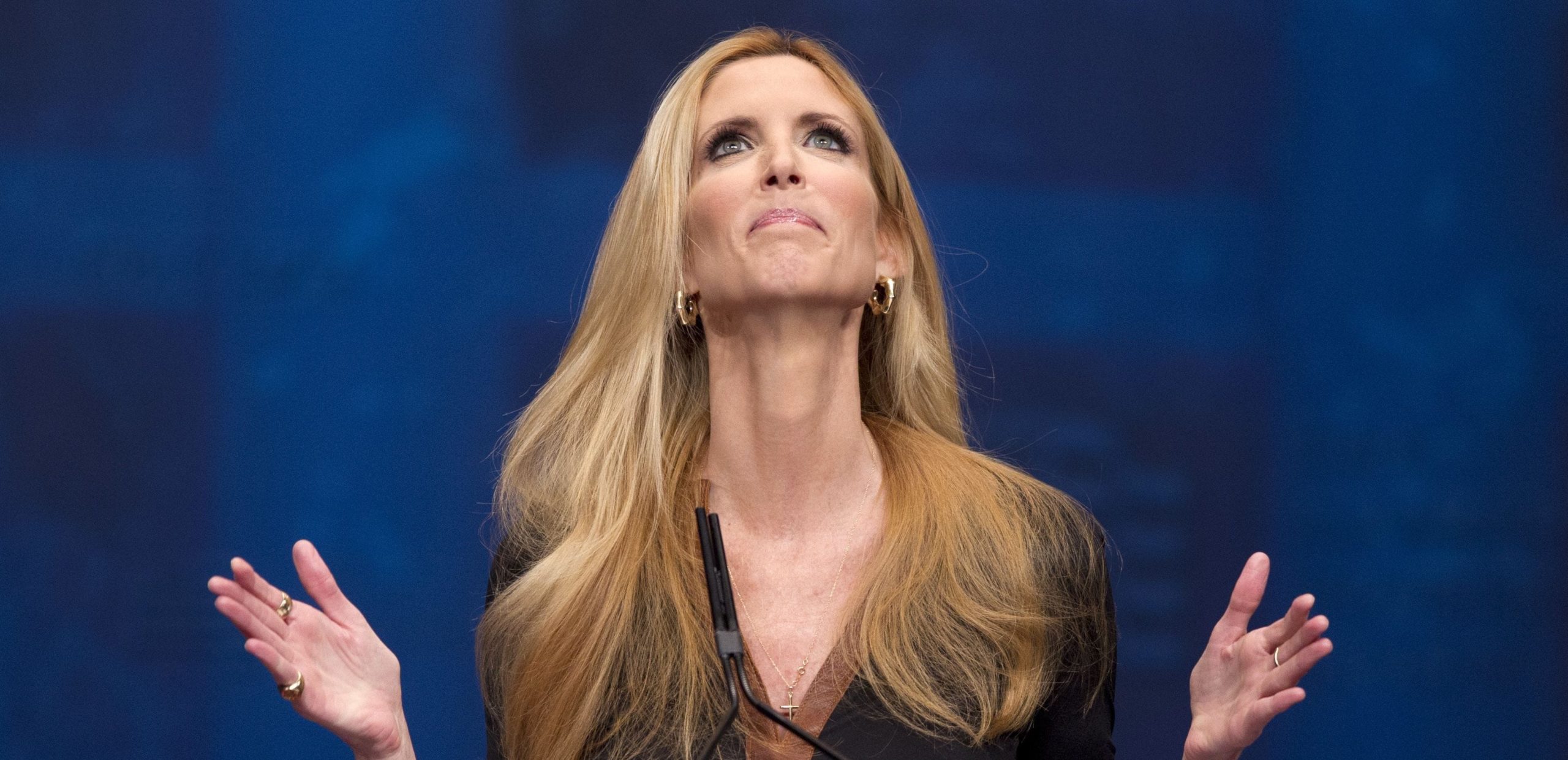Ann Coulter is no one’s idea of a leftie. She’s spent her decades-long career offending progressive opinion at every opportunity. So it says something when even she’s had enough of Republican (and Democrat) tax policies.
Her breaking point was the news that Donald Trump had paid a grand total of $750 in federal income taxes in 2016 and 2017. No, I haven’t missed out any zeros — according to the New York Times, it really was a three figure sum (though Trump said it was “millions” in yesterday’s debate).
Coulter had no time for the usual Rightwing anti-tax talking points. In fact, she to took to Twitter to repudiate them:
I don't think the conservative take on @realDonaldTrump paying no taxes should be: BECAUSE HE'S SMART!
I've paid nearly 50% of my income in taxes, year after year, and any system that allows billionaires to pay ZERO is unspeakable corrupt.
How about changing it, Democrats?
— Ann Coulter (@AnnCoulter) September 29, 2020
That’s the sort of thing you might expect from Alexandria Ocasio Cortez, but in a subsequent tweet Coulter made it clear she wasn’t about to cross the aisle:
Democrats won't touch the shockingly corrupt tax system that allows real estate billionaires (and hedge fund billionaires) to pay zilch in taxes because most of the billionaires donate to them.
How about attacking THAT, Republicans?
— Ann Coulter (@AnnCoulter) September 29, 2020
If the Republicans were smart, that is what they would do; but, of course, they’ve got their own billionaires to look after. The party’s also captive to a network of ultra-libertarian, tax-phobic influencers. Were any elected Republican — from the President downwards — to go after the super-rich, then an army of think tanks, campaign groups and commentators would swing against them with the all the force that money can buy.
Trump may have pulled off a hostile takeover of the GOP, but the establishment retained its stranglehold on tax policy. Indeed, according to the economists Emmanuel Saez and Gabriel Zucman, the richest 400 families in America now pay a lower effective tax rate than the poorest half of the country.
For all his posturing on trade issues, Trump’s economic populism is a paper tiger. There’s been no real reform and those voters who delivered ‘blue wall’ states like Michigan and Pennsylvania to the red column can see that. If, contrary to the polls, they stick with him, it’ll be because of culture war issues, not because he’s put the livelihoods of ordinary working people before the greed of the rich.
Ironically, it’s the culture war that would allow a Biden administration to be soft on tax too. As every woke corporation knows, no one’s looking at how you make your money as long as you spend some of it saying the right things. Unlike Donald Trump, Joe Biden isn’t a billionaire candidate, but he’s the billionaires’ candidate. So expect his reforms to be social not economic, and the extra money he spends to be borrowed not taxed.
Meanwhile, expect the Republican establishment to take back control of the losing party, blaming their defeat on non-existent economic populism which they themselves would never allow.
In short, America desperately needs a third party. A party of the centre, not the fringes, but fully dedicated to real reform and the defeat of vested interests. Of course, it would take a billionaire to fund it.











Join the discussion
Join like minded readers that support our journalism by becoming a paid subscriber
To join the discussion in the comments, become a paid subscriber.
Join like minded readers that support our journalism, read unlimited articles and enjoy other subscriber-only benefits.
Subscribe